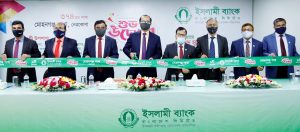Increased appeal exports could create more and better jobs in Bangladesh if the country makes improvement in productivity and product quality by enforcing a better safety condition and other compliance policies, said a World Bank report.
The report, released on Monday, said successful implementation of reforms will help Bangladesh increase exports and capture more jobs from China’s gradual exit from the clothing market and compete with Vietnam, Cambodia, and Indonesia. Dhaka, UNB news agency reported.
The report, titled ‘Stitches to Riches: Apparel Employment, Trade and Economic Development’, was jointly launched by the World Bank and Bangladesh Institute Development Studies (BIDS) at an event at the BIDS conference room.
The report said Bangladesh has steadily increased its share of the global apparel trade above the world average and greater than China but lower than that of the Southeast Asian countries.
Noting that Bangladesh has the largest apparel export industry in South Asia and its share is 6.4 percent of the global apparel exports which highlights that Bangladesh needs to improve performance on non-cost factor important to global buyers.
For the US market, a 10-percent increase in Chinese apparel prices will increase apparel employments in Bangladesh by 4.22 percent, the report said.
Addressing the event, Prime Minister’s Economic Affairs Adviser Dr Mashiur Rahman said synchronisation is needed among speed of development of technical skills, enlargement of the industry, diversifications and qualitative improvement of the industry. “The government should ensure this match.”
Admitting that there is infrastructure inadequacy, he said the infrastructure should increase doubtlessly for increasing productivity.
World Bank Country Director Qimiao Fan said the apparel industry is extremely important to Bangladesh’s economy, accounting for 83 percent of the total export. “Given the rising costs and prices in China really cooked an opportunity for countries in South Asia particularly Bangladesh.”
“The potential decrease in Chinese exports presents a huge opportunity for Bangladesh, if it can meet global buyers’ requirements for cost, quality, lead time, reliability and compliances with safety standards and other policies,” he added.
Executive Director of the Centre for Policy Dialogue (CPD) Prof Mustafizur Rahman said there is large gap between shares of the largest exporter China and the second largest Bangladesh in the global apparel market. The share of China is 40 percent, while that of Bangladesh is only 6 percent.
He stressed the need for skills and productivity enhancement as well as market and product diversification for the improvement of the readymade garment sector.
President of Bangladesh Garment Manufacturers and Exporters Association (BGMEA) Md Siddiqur Rahman disagreed with the report findings partially that says the quality of Bangladesh apparel production is now low. “We don’t agree that quality of our apparel is low.”
Terming the RMG the lifeline of the country’s economy, he said, “Massive safety measures have been taken and got success in improving the safety after the Rana Plaza tragedy. Bangladesh is now a trusted source of the global apparel markets,” the BGMEA President said.
Chairman of Business Initiative Leading Development (BUILD) Asif Ibrahim also said the skill development is an area that Bangladesh needs to address to boost the RMG export.
Placing the report, World Bank lead economist Gladys Lopez-Acevedo said, “Bangladesh should capitalise on its position as regional leader and implement policies to improve the quality of its product. Bangladesh should focus on sustaining the creation and expansion of good jobs, brining more women into the work force and diversifying its products and markets to increase skills and value. ”
BIDS Director General Dr KAS Murshid presided over the function.




